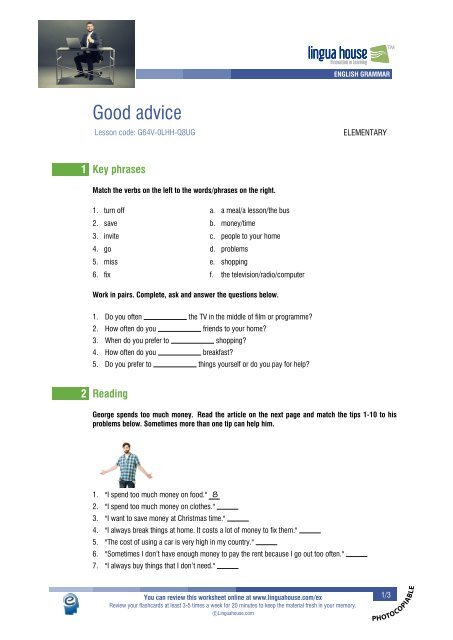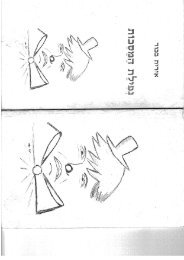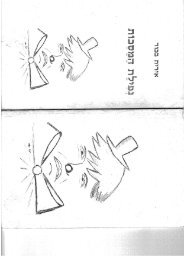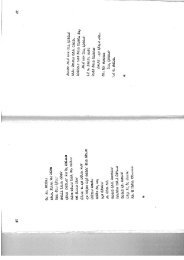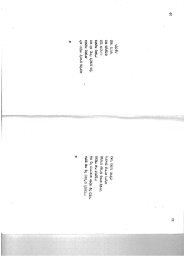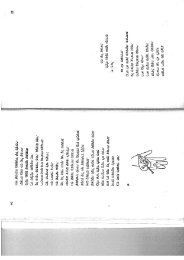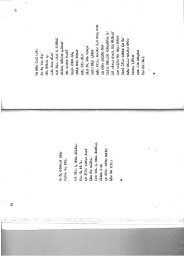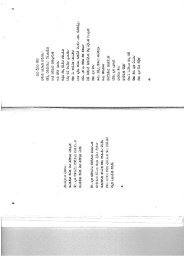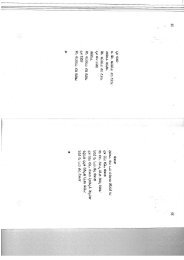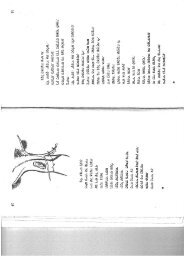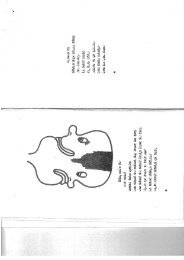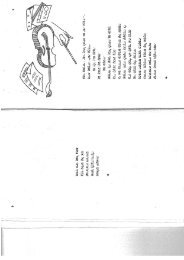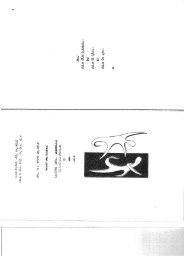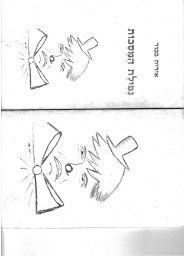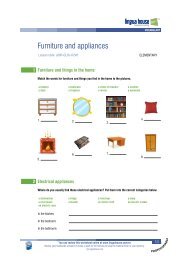good-advice
You also want an ePaper? Increase the reach of your titles
YUMPU automatically turns print PDFs into web optimized ePapers that Google loves.
lingua house<br />
Innovation in Learning<br />
A A ENGLISH GRAMMAR<br />
TM<br />
Good <strong>advice</strong><br />
Lesson code: G64V-0LHH-Q8UG<br />
ELEMENTARY<br />
1 Key phrases<br />
Match the verbs on the left to the words/phrases on the right.<br />
1. turn off a. a meal/a lesson/the bus<br />
2. save b. money/time<br />
3. invite c. people to your home<br />
4. go d. problems<br />
5. miss e. shopping<br />
6. fix f. the television/radio/computer<br />
Work in pairs. Complete, ask and answer the questions below.<br />
1. Do you often the TV in the middle of film or programme?<br />
2. How often do you friends to your home?<br />
3. When do you prefer to shopping?<br />
4. How often do you breakfast?<br />
5. Do you prefer to things yourself or do you pay for help?<br />
2 Reading<br />
George spends too much money. Read the article on the next page and match the tips 1-10 to his<br />
problems below. Sometimes more than one tip can help him.<br />
1. "I spend too much money on food." 8<br />
2. "I spend too much money on clothes."<br />
3. "I want to save money at Christmas time."<br />
4. "I always break things at home. It costs a lot of money to fix them."<br />
5. "The cost of using a car is very high in my country."<br />
6. "Sometimes I don’t have enough money to pay the rent because I go out too often."<br />
7. "I always buy things that I don’t need."<br />
You can review this worksheet online at www.linguahouse.com/ex 1/3<br />
Review your flashcards at least 3-5 times a week for 20 minutes to keep the material fresh in your memory.<br />
c○Linguahouse.com<br />
PHOTOCOPIABLE
Good <strong>advice</strong><br />
lingua house<br />
Innovation in Learning<br />
A A A A ENGLISH GRAMMAR<br />
TM<br />
HOW TO SAVE MONEY<br />
Everyone wants to save money. So here are our special tips.<br />
1 Turn off the television. This has a number of benefits. When you don’t watch television, you don’t watch<br />
advertisements and you spend less money on shopping. You can also reduce your electricity bill and<br />
focus on other things in life.<br />
2 Wait 30 days before you buy something expensive. Very often, people buy things that they think are<br />
necessary. But after one month, they feel bad about their decision. So waiting 30 days will give you time<br />
to decide if it is really important.<br />
3 Invite friends to your home. Going out to eat or drink can be expensive. It is always cheaper to stay at<br />
home with friends and make your own entertainment.<br />
4 Repair your clothes. Don’t throw away a shirt because it has a broken button. Don’t be lazy. You can<br />
repair it very easily and save money.<br />
5 Drink more water. Drinking water has health and financial benefits. Drinking a glass of water before each<br />
meal helps you feel fuller and eat less. You also spend less money on more expensive drinks.<br />
6 Don’t buy new clothes. Used clothes are often very cheap, even if they were worn only once. So buying<br />
used clothes can save you a lot of money.<br />
7 Go shopping after the holidays. Some clever people buy Christmas decorations after Christmas, but this<br />
method works for every holiday. Wait until about two days after a holiday and buy everything you need for<br />
the next holiday. You can get very big discounts.<br />
8 Don’t miss breakfast. A healthy breakfast can be very cheap and it gives you energy for the day. It can<br />
help you control your appetite for a big, expensive lunch.<br />
9 Try to fix things yourself. Many years ago, it was difficult to fix problems in our cars and in our homes.<br />
But now there are a lot of online videos that show us how to fix things for free.<br />
10 Don’t go by car. If your town or city has a public transportation system, use it instead of your car. It’s<br />
much cheaper and you don’t need to worry about parking.<br />
3 Talking point<br />
Discuss the questions below.<br />
1. Do you do any of these things now?<br />
2. Did you do any of these things in the past?<br />
3. In your opinion, which is the best tip?<br />
You can review this worksheet online at www.linguahouse.com/ex 2/3<br />
Review your flashcards at least 3-5 times a week for 20 minutes to keep the material fresh in your memory.<br />
c○Linguahouse.com<br />
PHOTOCOPIABLE
Good <strong>advice</strong><br />
lingua house<br />
Innovation in Learning<br />
A A A A ENGLISH GRAMMAR<br />
4 Grammar - imperatives<br />
Look at the sentence below from the text:<br />
TM<br />
"Turn off the television."<br />
"Don’t miss breakfast."<br />
The phrases in bold are called ‘imperatives’. We use imperatives to give strong <strong>advice</strong>. In the text, find<br />
three more examples of the positive imperative and three more examples of the negative imperative.<br />
5 Practice<br />
Work in pairs. Look at the tips below on how to stay fit and healthy. Decide if each tip is <strong>good</strong> or bad<br />
<strong>advice</strong> and correct the bad tips like in the example.<br />
Don’t eat a lot of fruits and vegetables. BAD ADVICE (Eat a lot of fruits and vegetables)<br />
1. Walk to the supermarket.<br />
2. Eat a lot of fast food.<br />
3. Don’t drink a lot of water.<br />
4. Do some exercise every day.<br />
5. Don’t drink a lot of alcohol.<br />
6. Sleep for less than 6 hours every night.<br />
7. Sit at home and watch TV every evening.<br />
8. Visit the doctor for a checkup once a year.<br />
9. Walk up and down stairs. Don’t take the escalator.<br />
10. Smoke every day.<br />
You can review this worksheet online at www.linguahouse.com/ex 3/3<br />
Review your flashcards at least 3-5 times a week for 20 minutes to keep the material fresh in your memory.<br />
c○Linguahouse.com<br />
PHOTOCOPIABLE
Good <strong>advice</strong> - Key<br />
lingua house<br />
Innovation in Learning<br />
A A A A ENGLISH GRAMMAR<br />
TM<br />
1- Key phrases<br />
1. f 2. b 3. c 4. e 5. a 6. d<br />
1. turn off 2. invite 3. go 4. miss 5. fix<br />
2- Reading<br />
2. 4,6 3. 7 4. 9 5. 10 6. 3 7. 1,2<br />
3- Talking point<br />
The discussion can be done in pairs or in groups.<br />
4- Grammar - imperatives<br />
Students search the text for examples of positive and negative imperatives, e.g. ‘Invite friends to your home’,<br />
‘Don’t be lazy’.<br />
5- Practice<br />
Possible answers:<br />
1. GOOD ADVICE<br />
2. BAD ADVICE - Don’t eat a lot of fast food.<br />
3. BAD ADVICE - Drink a lot of water.<br />
4. GOOD ADVICE<br />
5. GOOD ADVICE<br />
6. BAD ADVICE - Don’t sleep for less than 6 hours every night.<br />
7. BAD ADVICE - Don’t sit at home and watch TV every every.<br />
8. GOOD ADVICE<br />
9. GOOD ADVICE<br />
10. BAD ADVICE - Don’t smoke.<br />
You can review this worksheet online at www.linguahouse.com/ex<br />
Review your flashcards at least 3-5 times a week for 20 minutes to keep the material fresh in your memory.<br />
c○Linguahouse.com<br />
i<br />
PHOTOCOPIABLE


